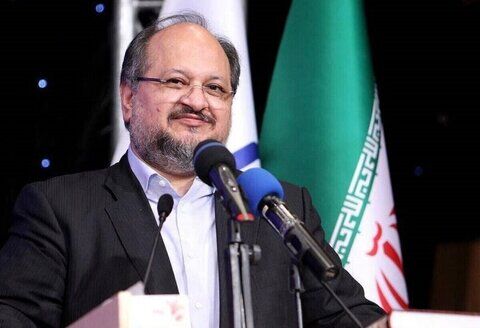According to PGPIC, Mohammad Shariatmadari, speaking Wednesday at the company’s annual general meeting, thanked the group’s workers, experts, and engineers, calling the large pool of specialized human resources one of Persian Gulf Holding’s greatest advantages. “This skilled workforce is the group’s most valuable asset,” he said.
Shariatmadari emphasized the importance of adhering to governance requirements, noting that while compliance is mandatory, governance itself is not the company’s mission. “Our main duty is to ensure shareholder returns and generate sustainable profit in the medium and long term,” he said. “If I am to address the company’s challenges, I will begin with accurately identifying and solving upstream industry issues.”
Halting Loss-Making Production
Referring to recent assessments within the holding, Shariatmadari said his two main priorities are establishing a sustainable feedstock supply structure as the industry’s primary input and ensuring continuous production. “Without reliable feedstock, all available tools and capacities become ineffective,” he said.
He noted that several projects had slowed or stopped in previous years due to limited financial resources, both domestic and foreign. “Securing financing for project completion is now a priority,” he said. “No project will begin without a defined financial plan.”
Shariatmadari stressed that unprofitable production must stop, even if that means shutting down a company. “This is an economic enterprise,” he said. “We cannot keep producing a product that causes losses due to factors such as feedstock type, market prices, or inefficiencies. I have the courage to make that decision — shareholder money cannot be spent on loss-making production.”
Large Complexes Drive Record Production
Highlighting the company’s global standing, Shariatmadari said Persian Gulf Holding ranks 12th among the world’s top 100 chemical companies. Last year, the group recorded an all-time high in production — more than 2 million tons above the previous fiscal year — driven by the performance of Bandar Imam, Nouri, Bidboland Persian Gulf Gas Refinery, Hoveyzeh Gas Refinery, Gachsaran, and Pars petrochemical complexes.
He added that consolidated operating income grew 42%, while net profit rose 63% year-on-year. “The company’s stock performance has closely tracked the overall market index, and the share of PGPIC and its subsidiaries in the total market has increased to 14.92%,” he said, adding that the holding’s market value now stands at 875 trillion rials.
Regarding capital increase, he said the company raised its capital by 25 trillion rials to 100 trillion rials through retained earnings to prevent double taxation, use legal capacities, and finance new projects.
Persian Gulf Holding’s Green Transition
Shariatmadari discussed the company’s development projects, noting that the Apadana Methanol Project has an annual production capacity of 1.6 million tons and has created about 420 jobs during its operation.
He said that with the completion of flare gas recovery projects at the Bidboland Persian Gulf Gas Refinery, 57 flares have been extinguished, preventing the release of 10 million tons of carbon emissions — equivalent to fulfilling 26% of Iran’s environmental commitments under the 2015 Paris Agreement.
Currently, 15 projects are under way at the holding level, along with six at subsidiary complexes and five at the Petrochemical Investment Co. (Petrol). These projects have a combined nominal capacity of 12 million tons, with total investments of $7.25 billion (equivalent to 158 trillion rials).
Nurturing Future Leaders of the Petrochemical Industry
Shariatmadari also highlighted the company’s commitment to innovation, research, and social responsibility. In line with supporting domestic manufacturing and technology development, Persian Gulf Holding has established a private corporate venture capital research and technology fund with an initial capital of 1 trillion rials to back knowledge-based and technological projects. It has also founded the Persian Gulf Innovation and Engineering Co. with another 1 trillion rials to localize the industry’s required technical know-how.
He said a social responsibility committee has been formed to better direct CSR budgets at both the parent company and subsidiary levels. “In fiscal 1403, the holding’s CSR budget was set at 50 billion rials and has been fully utilized,” he said. “We also plan to offer scholarships and support students while implementing the ‘Future Leaders of the Petrochemical Industry’ program to ensure the employment of local talents.”


Your Comment